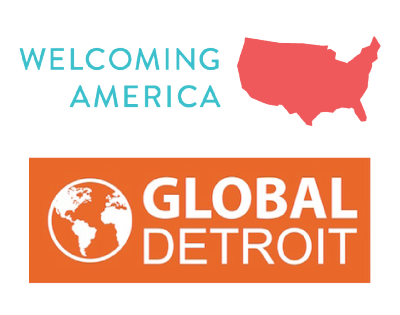Tackling the “Brain Waste” Challenge for Economic Growth & Upward Mobility
By Steve Tobocman
Skilled Immigrants Offer Local Communities Economic Growth Opportunities
While most Americans braved holiday traffic, attended holiday parties, or simply watched the NFL playoff picture solidify at 5:00 p.m. on Sunday, December 15th, I joined over 100 other committed and rapt immigrant economic development practitioners and enthusiasts in Brooklyn for an exciting discussion on new research regarding highly-skilled (college-educated) immigrant integration and the “brain waste” problem.
National organizations like Upwardly Global, World Education Services (WES) Global Talent Bridge, the Welcome Back Initiative, and the Welcoming Center for New Pennsylvanians have worked for years to help college-educated immigrants achieve meaningful employment in the U.S. Noting that college-degreed immigrants are significantly more likely to be working in jobs and fields that do not utilize their educational and professional backgrounds or simply are more likely to be unemployed, these advocates have labeled the phenomenon “brain waste.” In short, the underutilization of the skills and talents of college-educated immigrants means that economic assets within the U.S. economy and the local economies that comprise it are going to waste, while the country faces a skills shortage in many of the professions for which these talented immigrants are trained.
With an estimated 1,300 immigration advocates in town for the National Immigrant Integration Conference (NIIC), the IMPRINT coalition hosted a special session and discussion of two new groundbreaking studies on the “brain waste” of highly-skilled immigrants. Despite the Sunday evening timeslot, well over 100 folks attended the session, which was immediately followed by a WE Global Network cocktail and networking event.
During the session, the Migration Policy Institute (MPI), a leading immigrant integration policy and research institute, discussed research quantifying the lost economic contributions from the underemployment or unemployment of immigrants with college degrees. MPI will release its research (sponsored by WES and The Partnership for a New American Economy) in the spring. The study will quantify the cost of “brain waste” by unveiling substantial loss in economic activity, as well as foregone state and federal taxes.
The second piece of research presented was the “Steps to Success” study released by IMPRINT in September 2015. The IMPRINT report detailed the experiences of college-educated immigrants in six U.S. metros—Boston, Detroit, Miami, Philadelphia, San Jose, and Seattle. This first-of-its-kind study is based upon survey responses of more than 4,000 college-educated immigrants living in these regions. According to the research, 22 percent of those surveyed achieved professional success (defined as earnings success and skills success, plus working in a professional or managerial job). Slightly more (28 percent) of the survey respondents had both earnings success (defined as earning over $50,000 annually) and skills success (defined as use of their degree. And slightly more (31 percent) had at least earnings success.
The report sought to identify what factors contributed to successful integration of highly-skilled immigrant talent. The report’s key findings show that:
- Social capital is powerful: The survey showed that there is a remarkably strong correlation between the size of an immigrant’s social network and his or her likelihood of success.
- English really matters: Across the board, stronger English language skills were correlated with virtually every possible measure of immigrant success.
- Immigrants take enterprising approaches: Numerous self-improvement strategies were reported, including academic credential evaluation, English language classes, and additional education in the United States.
- U.S. education helps: Survey respondents with at least some of their formal education at U.S. institutions usually achieve more success than those without.
WE Global members are already on the pathways to address these barriers to economic growth. The Welcoming Center for New Pennsylvanians is a national leader in helping skilled immigrants attain the credentials and licenses they need, as well as counseling individuals on pathways to and successful placement in jobs that use their talents, education, and degrees. The attendees at the NIIC also heard how St. Louis Mosaic Project is trying to help local immigrants navigate the “brain waste” problem by connecting them to a business etiquette specialist and working to help employers connect with graduating international students at local universities.
These issues also are being addressed head on in Cincinnati by Cincinnati USA Regional Chamber’s Agenda 360, as well as in Detroit by the State’s Michigan International Talent Solutions initiative, Upwardly Global, Welcome Dayton, and the Global Talent Retention Initiative program run by Global Detroit. Furthermore, the Ohio Welcoming Initiatives—which includes representatives from Cleveland, Akron, Dayton, Toledo, Columbus and Cincinnati—is working closely with WES Global Talent Bridge to develop customized training opportunities to involve local stakeholders in skilled immigrant integration efforts. They also are beginning to work with the Ohio Department of Higher Education to further its work on licensing guides.
Both studies are worth a read to better understand how your region can make full use of the incredible immigrant talent that is going to “waste” while employers have professional positions that go unfilled, and promote upward social mobility for highly skilled immigrants. New strategies are being developed locally and pioneered across the WE Global Network to connect skilled immigrants with unmet employer needs.



